
Social Procurement Case Study




Social Procurement Case Study


Tāmaki Makaurau (Auckland) is an appealing place for people to live, an allure that dates back to ancient times. Numerous Iwi were drawn to Tāmaki Makaurau. This area was, and remains, a place of abundance. Over time, many were drawn away from rural settings towards this urban centre, seeking its wealth and opportunities to support their whānau (families). Even today, Tāmaki Makaurau stands as the economic powerhouse of Aotearoa.
However, the wealth and prosperity of our city isn’t always equitably distributed. Not everyone fully experiences the opportunities Tāmaki Makaurau offers. As a result, certain groups within our society find themselves with significantly less than others.
Aware of these disparities, strategic and intentional planning was undertaken so that the City Rail Link (CRL) project could generate positive socio-economic outcomes during delivery. City Rail Link Ltd (CRL Ltd) commissioned The Southern Initiative to do a scoping report and researched Social Outcomes that were being achieved in England, Canada and Australia. A CRL Social Outcomes Strategy was created taking those learnings into consideration the project concentrated its efforts on achieving specific outcomes for Mana Whenua, Māori, Pasifika, and youth.
After identifying this target group CRL Ltd decided that the most positive impact could be made by offering training opportunities, creating employment, nurturing social innovation, and supporting the future workforce.
Social innovation through social procurement was identified as a core way to deliver positive social outcomes while building the CRL project.
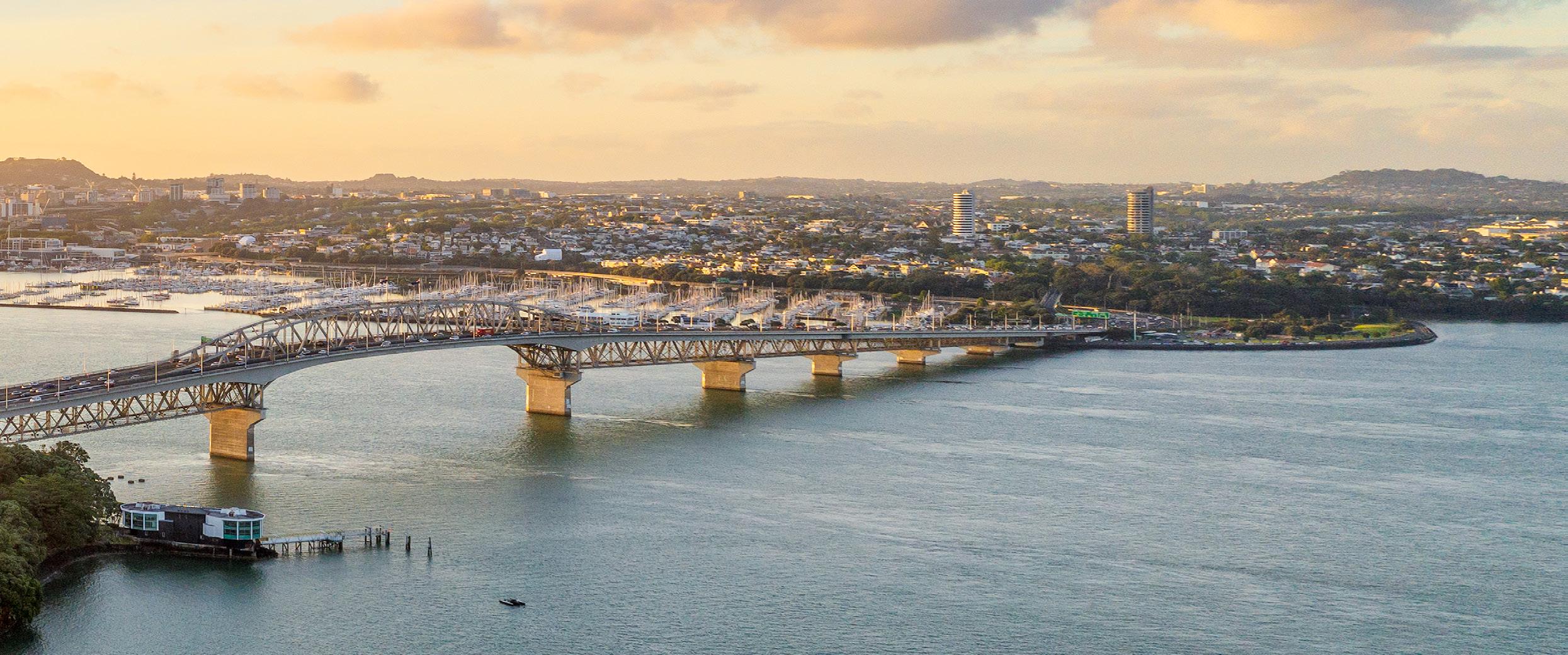
The CRL Social Outcomes Strategy was established along with an advisory group including representatives from Ministry of Business Innovation and Employment (MBIE) Sector Workforce Engagement Programme (SWEP), Auckland Council’s Southern Initiative, the Ministry of Social Development and a Tier 1 construction company.
They came with extensive knowledge, local, national and international relationships and a passion for seeing social outcomes thrive in Aotearoa. Establishing a social procurement strategy was not common practice for infrastructure projects in Aotearoa and government procurement rules, including seeking broader outcomes, did not come into effect until October 2018. The Social Outcomes Advisory Group (SOAG) was passionate about uplifting and creating real economic benefits for Māori and Pasifika owned businesses. The CRL project set itself a high benchmark in championing social outcomes and the CRL Ltd Principal Sustainability Advisor, was key in championing these outcomes.
Social outcomes were included in the main delivery contract (Contract 3: Stations and Tunnels) minimum requirements.
Social outcomes and supply chain requirements were clearly defined stating that the Contract 3 delivery partner must maximise opportunities for Māori and Pasifika business and Social Enterprise participation and be proactive in alerting these businesses of potential tender and supply chain opportunities.
After winning the tender for the main contract to deliver the City Rail Link in 2019 Link Alliance embraced the challenge offered by the social outcomes included as part of the minimum requirements and its corresponding Key Responsibility Areas (KRA’s) and Key Performance Indicators (KRI’s). Understanding that what gets measured gets managed.
During the project’s delivery phase, Link Alliance - through its mandate from CRL - has emphasised leaving a lasting positive legacy for the communities of Tāmaki Makaurau. Adopting initiatives aimed at promoting equity, inclusion, and diversity. Initiatives centred around four key areas: training, employment, social procurement and engaging with students (future workforce) to deliver positive social outcomes while building the largest transport infrastructure project in Aotearoa.
Link Alliance made a commitment to leave a lasting positive legacy for the communities of Tamaki Makaurau. Taking an intentional and strategic approach to ensure fair and equitable access to contract opportunities for Māori and Pasifika businesses.
Timeline
Link Alliance formed in mid-2019 and by the end of the year had established a Sustainable Procurement Policy committed to delivering supply chain opportunities for Mana Whenua, Māori and Pasifika businesses.
In 2020, a Social Procurement Lead was employed and worked alongside the Procurement team, Māori, and Pasifika business owners to identify social procurement opportunities on behalf of Link Alliance and supported larger subcontractors to help develop their own awareness and understanding of social procurement.
Amotai, Aotearoa’s first supplier diversity organisation, provided support and guidance to connect Link Alliance with Māori and Pasifika businesses and social enterprises.
Link Alliance ensured the Māori and Pasifika suppliers identified by Amotai were aware of potential tender opportunities.
In 2021 the first Māori and Pasifika businesses were engaged to work on the CRL by the Link Alliance.
Between 2021 and 2023 CRL Ltd and the SOAG conducted annual audits of Social Procurement delivery, including a survey of all Link Alliance Māori and Pasifika suppliers in 2022.
By May 2025 over $152 milllion had been spent with 84 Māori and Pasifika businesses.
It is now 2025 and Link Alliance procurement is 98 per cent complete. This case study outlines the journey and impact of the Link Alliance in fostering social innovation and supplier diversity; including procuring goods, works and services from Māori and Pasifika businesses based on findings from the case study methodology set out on page 9.
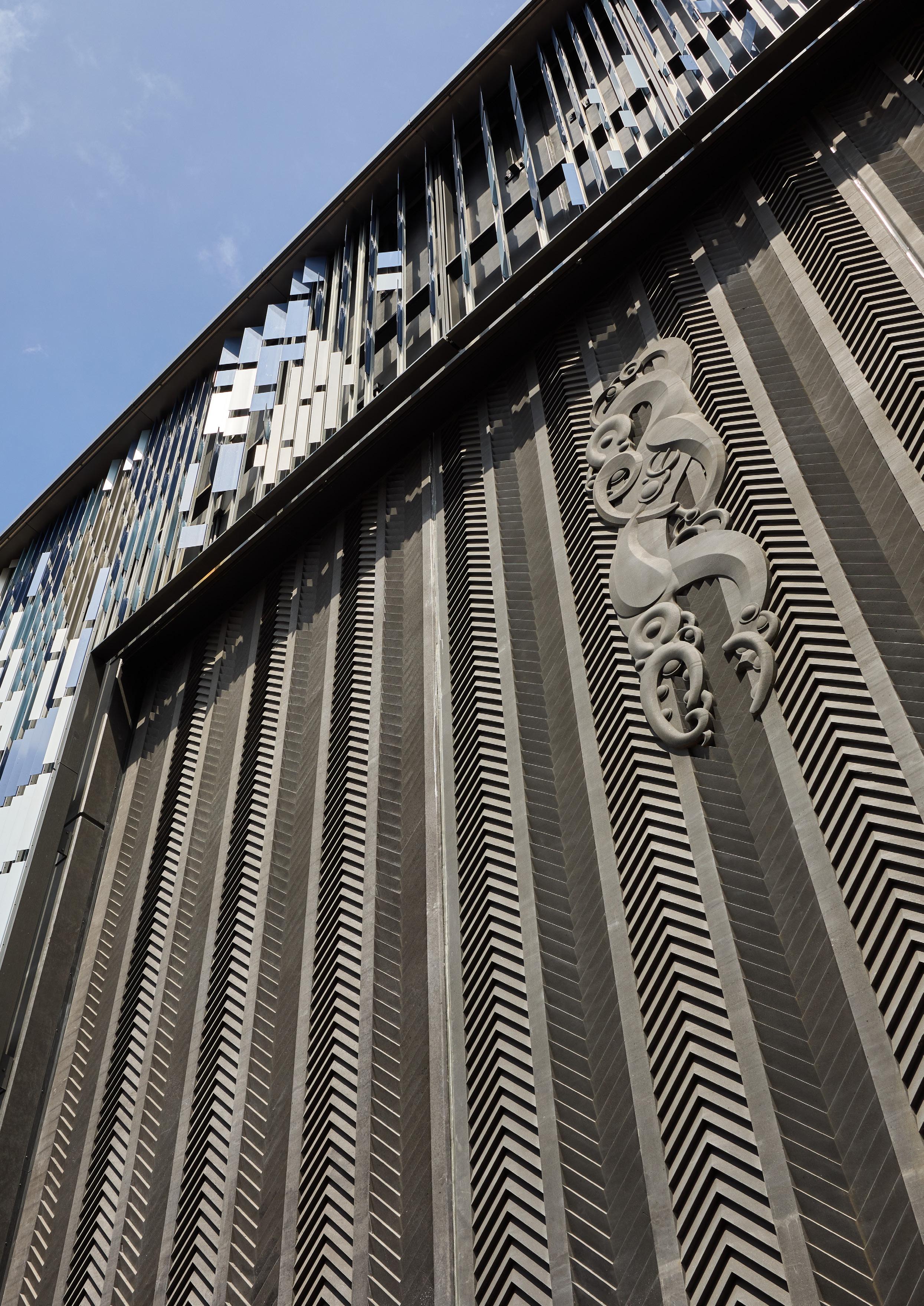
CRL is the largest transport infrastructure project ever to be undertaken in New Zealand. It has an estimated investment of $5.493bn and is expected to be delivered by December 2025. When it opens in 2026, Aucklanders will have new world-class stations and a modern rail service that will transform the way people travel around the city and benefit the entire network for decades to come.
The project includes twin 3.45-kilometre-long tunnels which have been built up to 42 metres below Auckland’s city centre. These connect Waitematā Station (Britomart) with a re-developed Maungawhau Station on the Western Line. Two new underground stations built along the CRL connection will open up central city access; Karanga-a-Hape Station and midtown’s Te Waihorotiu Station.
Link Alliance is a consortium of seven companies from Aotearoa and around the world working together to deliver the main stations, tunnels and rail systems for the CRL project. Link Alliance comprises City Rail Link Limited (CRL Ltd), Vinci Construction Grands Projets SAS, Downer New Zealand Limited, Soletanche Bachy International NZ Ltd, WSP New Zealand Ltd, AECOM NZ Limited and Tonkin + Taylor Ltd.
In 2012, 19 Mana Whenua across Auckland were approached to ascertain their wish to be involved. Eight iwi now sit on the CRL Mana Whenua Forum. The project’s partnership with Mana Whenua, led by CRL Ltd and the CRL Mana Whenua Forum, is a ground-breaking exemplar of iwi engagement and collaboration for a large infrastructure project.
The CRL Mana Whenua Forum continues to flourish, playing a key role in sharing Māori mātauranga (knowledge), designing and naming the CRL stations, on built heritage and archaeological matters, consenting processes and across sustainability and social outcomes.
A mana whenua representative has been part of the Social Outcomes Advisory Group since 2021.

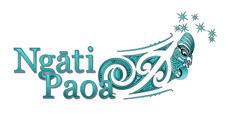

To capture the impact of Link Alliance’s supplier diversity efforts, a multi-faceted approach was taken.
Spend analysis: Spend results and distribution of financial resources were reviewed, specifically analysing how much was spent with Māori and Pasifika businesses, breaking down expenditure by category.
Survey reports, audit reports, and case studies review: Previously produced survey and audit reports and case studies related to the project were compiled and reviewed.
CRL Ltd Māori and Pasifika supplier survey report: In 2022, CRL Ltd conducted an online survey with Māori and Pasifika suppliers to Link Alliance. The survey assessed whether CRL Ltd’s requirement to engage and support Māori and Pasifika small and medium enterprises was being met and whether it had led to positive outcomes like quality employment, training, career development, community support, capacity building, and economic contribution.
Interviews: Personal insights from the team at CRL Ltd and Link Alliance, as well as Māori and Pasifika businesses were collected through interviews,
• Five Māori and Pasifika suppliers
• Procurement Manager
• Social Outcomes Legacy Manager
• Tender Lead
• Sustainability Manager (CRL Ltd)
Link Alliance has taken an intentional and strategic approach to ensure there is fair and equitable access to contract opportunities for Māori and Pasifika businesses. The list below shows the active approach taken to create social outcomes and engage with Māori and Pasifika businesses.
Social outcomes and procurement teams identify and connect with Māori and Pasifika businesses, with potential for tender participation shared through Amotai and Mana Whenua.
Opportunities for participation maximised by alerting organisations of potential tenders and supply opportunities, with detailed supplier briefings for bigger work packages.
Suppliers tendering for packages with high social outcomes opportunities are required to provide details of their social outcomes initiatives and a social outcomes weighting is applied to the evaluation of those tenders.
Feedback provided on unsuccessful tenders to support future success.
Whanaungatanga (kinship) built with contracted businesses.
The critical enablers and specific activities that supported supplier diversity outcomes are explored in more detail on pages 19 and 20.

Amotai (originally named He Waka Eke Noa) was established in 2018.
Amotai is the supplier diversity intermediary in Aotearoa and holds the largest verified database of Māori and Pasifika businesses.
CRL Ltd is a member of Amotai, Aotearoa's supplier diversity intermediary tasked with connecting Māori and Pasifika-owned businesses with buyers wanting to purchase goods, services and work. Amotai is the swell in the tide, a tide that can carry all waka to new horizons.
Amotai verifies Māori and Pasifika-owned businesses and holds a national database of support to CRL Ltd and Link Alliance so both parties can successfully engage with more Māori and Pasifika-owned businesses. This practice, commonly known as supplier diversity and development, is a dynamic and evolving discipline.
The City Rail Link Social Procurement Survey found that: 86% of the Māori and Pasifika businesses that responded were Amotai registered.

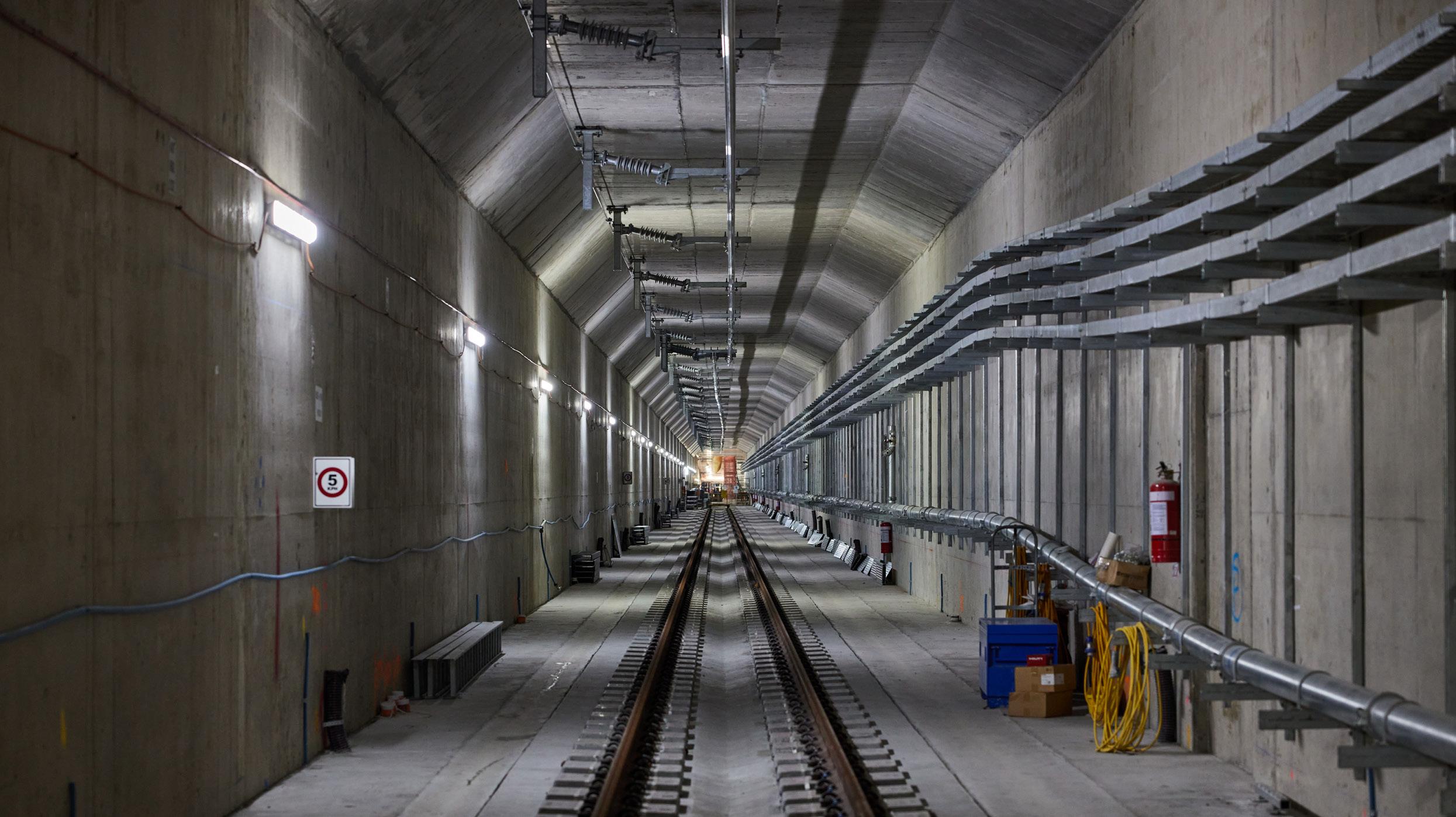
Supplier diversity is a strategic and intentional business process that proactively engages, supports and enables businesses owned by indigenous peoples, minority groups, women and social enterprises to be engaged in business-to-business (B2B) supply chains.
It’s aim is to level the playing field, so these businesses have fairer access to customers and markets.
The Link Alliance has a particular focus on Māori and Pasifika businesses and sought to ensure they had fair access to contract opportunities.
The Link Alliance has applied the definitions that Amotai Supplier Diversity uses to define:
A Māori business is a business where at least 50% of the shareholdings of a company are held by someone with whakapapa Māori.
A Pasifika business is a business where at least 50% of the shareholdings of a company are held by someone with indigenous Pasifika whakapapa.
A Māori and Pasifika business is where at least 50% of the shareholdings of a company are held by people who have whakapapa Māori and/or Pasifika whakapapa. E.g., 3 business owners, 1 is Māori, 1 is Pasifika, 1 is neither.
Māori and Pasifika businesses were sourced predominantly from Amotai.

Note: This only includes amounts that were direct engagements with Māori and/or Pasifika businesses and does not include any indirect engagements e.g where main contractors have sub-contracted work to Māori and/or Pasifika businesses.

It’s not about the dollars for me it’s about the impact that the spend has on our Māori and Pasifika whānau.
Berenize Peita, Social Outcomes Legacy Manager.
Spend analysis, survey and audit reports, case study reviews and interviews provide evidence of the following impacts of Links Alliance’s approach to Social Procurement.
By engaging with these businesses more than $152 million has been directly contributed to Māori and Pasifika economies.
Supported business continuity and track record building of more than 80 Māori and Pasifika businesses.
Labour hire companies were paid 100% of their wages over the lockdown period providing job security in a vulnerable time. This provided much needed financial support to hundreds of workers.
Supported businesses to build experience and credibility, particularly for smaller businesses who aren’t as experienced on large-scale projects.
Some businesses have been able to grow their staff through working on the project.
Some businesses have been able to go on and win work with other organisations leveraging experience gained on the CRL project.
Māori and Pasifika businesses have been able to build valuable networks and connections with construction managers, procurement staff and other Link Alliance and CRL Ltd staff.
Many businesses were engaged as subcontractors.
Some businesses were exposed to new technology and supported with mentoring by others on the project.
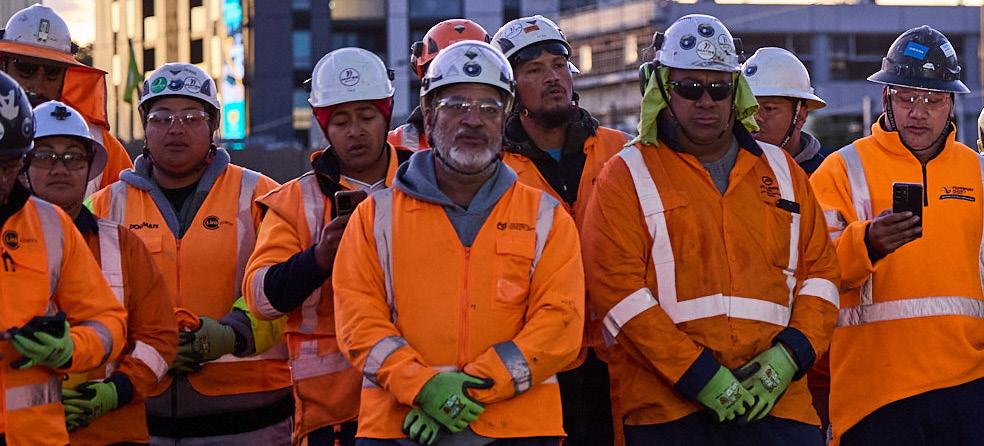
Māori and Pasifika business identified the following positive outcomes in their supplier survey responses.
Upskilling staff
Employing experienced people
Growing brand reputation
Better placed for future opportunities through growing track record
Increased understanding of the commercial sector
Increased discipline in health and safety
Businesses reported positive experiences across Link Alliance including its administration, training, social outcomes, and design teams, while connecting with management was valued. The collaborative approach taken by the Link Alliance team of relationship building, mutual respect and whanaungatanga among teams, was also of value. Businesses training, induction, and brand profile expectations were the criteria most often met.
When it came to the most important issues to the Māori and Pasifika businesses they reported:
Happy and well whānau
Engaged team
Cultural wellbeing
Community engagement
Financial performance
felt it was being practiced sometimes of business had increased their team size 36% 45% 55% felt tikanga was being practiced
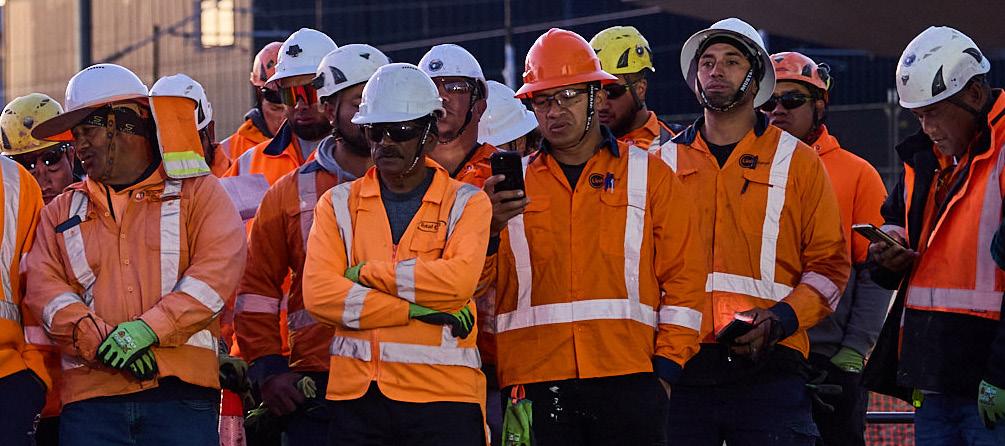
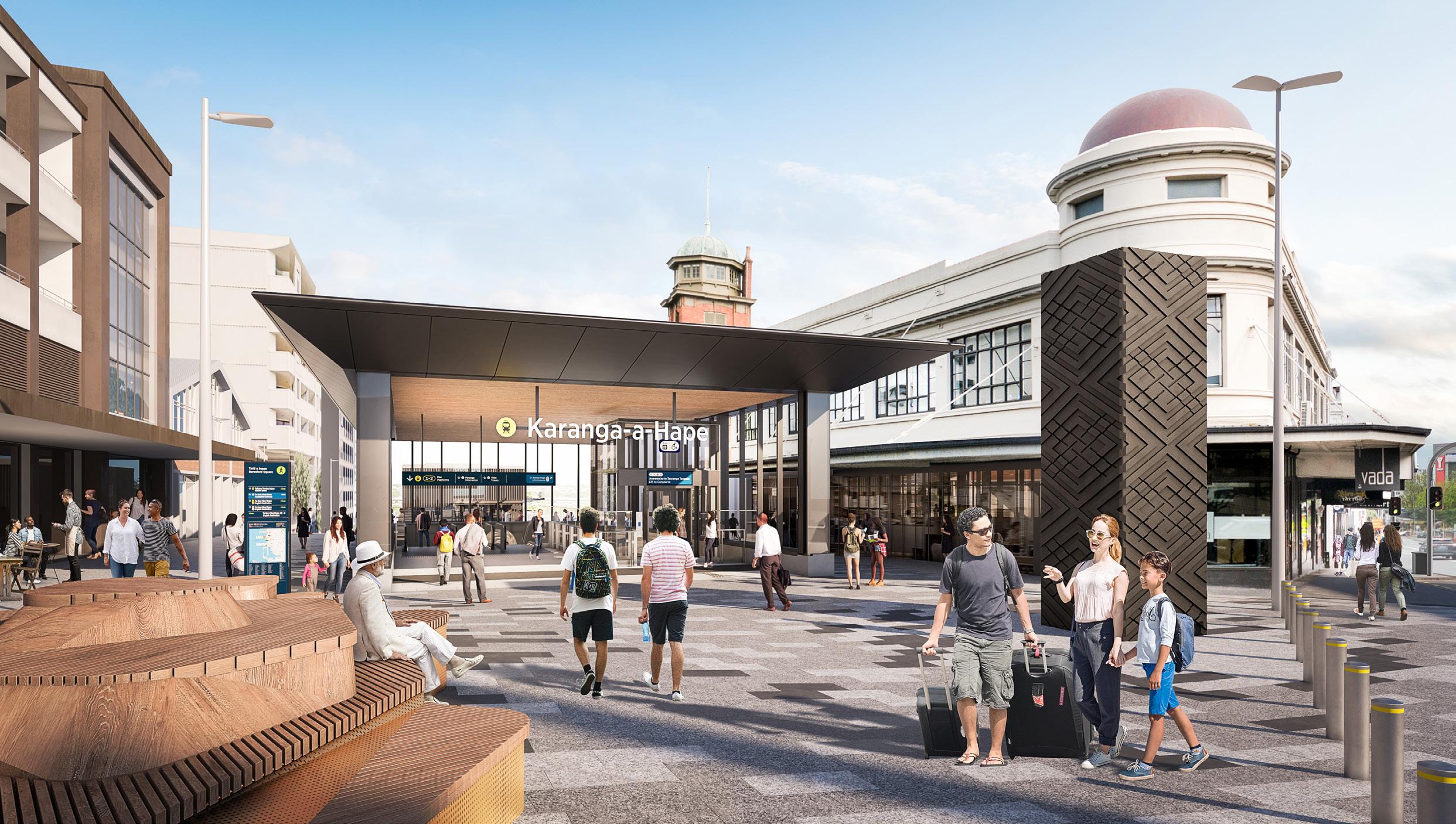
The top challenges identified by Māori and Pasifika businesses on the project included:
Planning
Securing a contract prior to starting work
Insufficient timing to resource
Relationships
Resourcing and managing conflicts
Getting started, meeting the procurement criteria, and working on-site was difficult for some businesses. Key issues raised included understanding contract requirements, establishing pricing, consistent changes in the programme and start dates, issues with accuracy and timeliness of payment, labour and supply decisions which did not reflect supplier briefs, issues with management style, poor communication and a need for more information where contracts were terminated or no further work was offered.
Businesses also indicated that to gain contracts in the future, further support would be helpful to understand requirements related to:
Environment and sustainability
Diversity and social impacts
Career development planning
Understanding language in contracts, pricing methodologies and more accessible procurement processes
Tunnels close to Maungawhau Station
1. Social outcomes were included in the CRL contract
CRL Ltd included minimum requirements for social outcomes in its contract with Link Alliance. This meant that there were set priorities and expectations on social outcomes delivery which had both incentives for achieving them and penalties if they weren’t achieved. This significantly helped drive action.
2. Social outcomes team and priorities were established from the beginning
CRL Ltd had the foresight to design and plan social outcomes into the project from the beginning. This set the tone for the social outcomes that would be achieved. As a result, a social outcomes team was set up and specific roles focused on the different elements of the social outcomes plan. One of the roles focused on social procurement and played a coordination role between the procurement team, the social outcomes team and Māori and Pasifika businesses.
3. Strong expertise and support in the establishment phase
Link Alliance had initial support from The Southern Initiative team and He Waka Eke Noa (now Amotai) which provided guidance and support.
4. Head of Procurement was on board
Having the Head of Procurement onboard was a critical enabler. The achievement of outcomes were the result of a genuine commitment to and belief in the purpose, demonstrating deep engagement and intrinsic motivation beyond formal requirements.
5. Senior Leadership were on board
The Project Alliance Director regularly provided support to the social outcomes team and talked about the importance of prioritising social outcomes on the project. Having this buy in increased the visibility and importance of supplier diversity and senior leadership members made an effort to attend Māori and Pasifika supplier briefings and networking events.
6. Kanohi kitea (being seen)
The social outcomes team had strong cultural capacity and would often provide karakia and kapa haka to the different sites to uplift staff morale. This enabled the team to meet people across all sites including construction managers. Being kanohi kitea, regularly seen faces, created strong relationships and made it easier to discuss social outcomes.
Link Alliance implemented a number of activities to support Māori and Pasifika businesses to engage and win contract work on the project. Different activities were deployed based on category of spend, time pressures, site location and other factors.
Link Alliance invited potential contractors into it’s office to meet the team, hear about the project and ask questions. The idea behind these hui was to support businesses to become more familiar with the site, project and people involved in the project. Some interactive hui were held specifically for Māori and Pasifika businesses. E.g. business breakfasts for labour hire.
Pipeline planning
In the early days of the project, pipeline planning occurred to try to understand the supply of Māori and Pasifika businesses in each category of work. This supported the procurement team’s market scanning.
In some cases small and medium businesses tendered for work but didn’t have the capacity to deliver an entire work package. Link Alliance unbundled packages to enable smaller businesses to deliver what was possible within their capability and capacity.
Included questions in tenders of ownership and Māori outcomes
Link Alliance included specific questions in tender requests about Māori, Pasifika and mana whenua ownership, as well as Amotai verification.
Identified businesses through Amotai
As part of market scanning and intentionally looking for Māori and Pasifika businesses to invite to compete for work, the Amotai database was used. This provided great insight into how many businesses and what businesses could participate in tendering.
Supplier debriefs
If Māori and Pasifika businesses didn’t win work, they were offered supplier debriefs to support their capability development and get direct feedback on what could have been done better.
Maungawhau Station
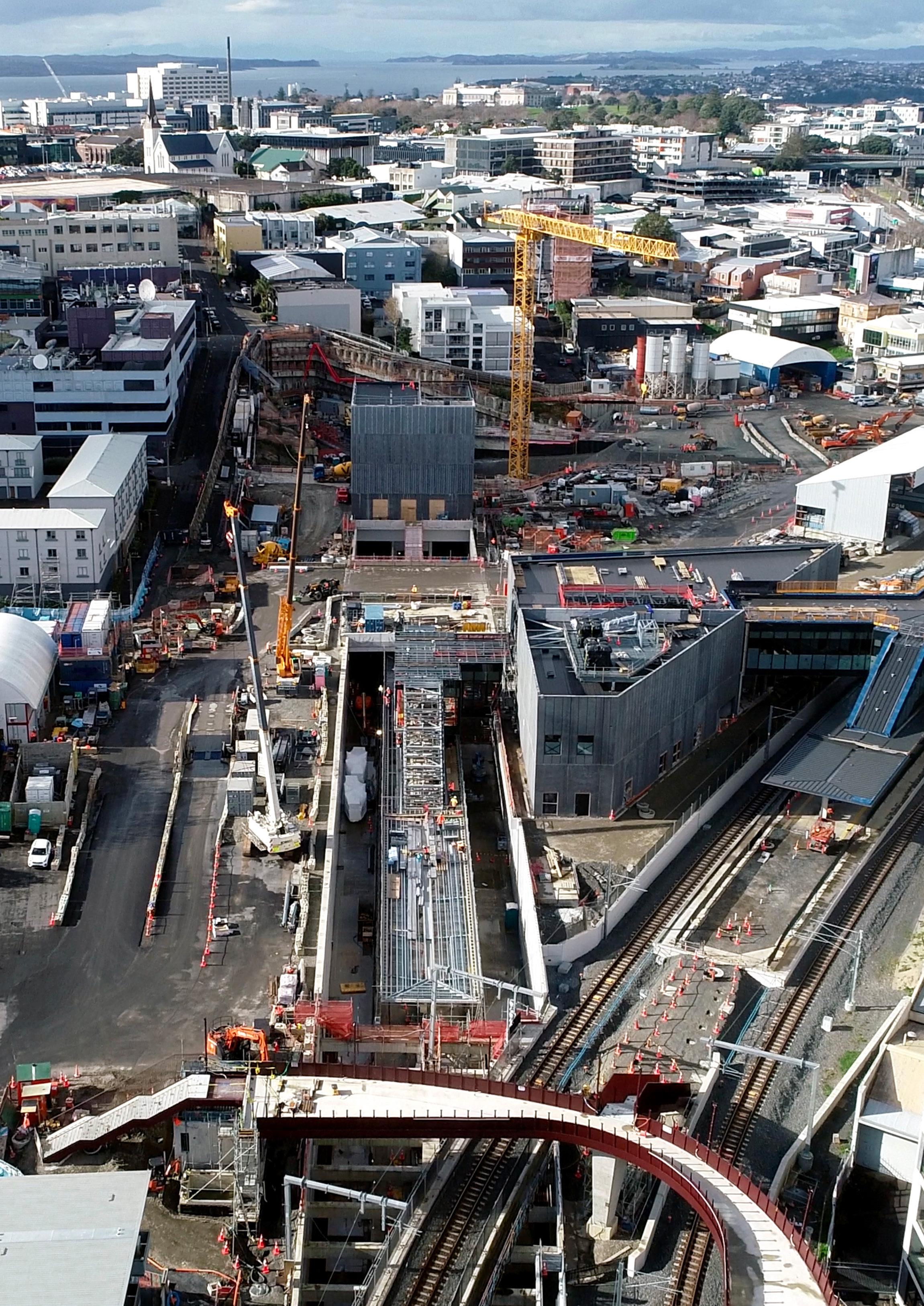
People generally don’t know the benefits of doing things with a social outcomes lens. But once they become aware they start to take real pride in the outcomes.
Berenize Peita, Social Outcomes Legacy Manager.
Whilst Link Alliance was able to create some great spend results across the course of the project, key staff across the procurement and social outcomes teams were conscious of the potential to do more.
The intention of this section is to provide learnings and insights about what it took to deliver supplier diversity outcomes on the project and where there was clear room for improvement. These learnings and insights have been highlighted by the Link Alliance Procurement Manager, the Social Outcomes Legacy Manager, CRL Ltd Sustainability Manager, Social Outcomes Advisory Group (through delivery audits) and the 2022 CRL Māori and Pasifika Supplier Survey
Awarding a tender marked the beginning of a significant relationship for both Link Alliance and each Māori and Pasifika businesses. Better understanding this has highlighted the need for greater cultural capability during contract delivery to improve: relationships, resource allocation, and conflict management.
Key elements of successful social procurement identified include clear contract terms and supplier briefs, adopting an inclusive and effective management style, focusing on good communication, and providing better information when contracts are terminated or no further work is offered.
Cultural capability: Having staff with strong cultural capabilities makes it easier for Māori and Pasifika suppliers to connect and build relationships with people that understand them.
Importance of a dedicated role: Appointing a dedicated person to maintain relationships with Māori and Pasifika suppliers and understand their needs showcases the importance of individual responsibility in managing key business relationships. This needs to be someone with high cultural competency and relationship skills.
Kanohi ki te kanohi: The value of face-to-face interactions is significant. It fosters stronger 1-1 relationships and can be more impactful than just reading about a company or receiving an e-mail.
Empathetic and relational approach: The need to foster a relationship-driven, empathetic approach to doing business is a significant learning. Providing ‘pastoral care’ for businesses is essential and can’t be undervalued. Māori and Pasifika businesses need a safe space to raise concerns, receive feedback and support on the project.
Avoiding assumptions: Making efforts to explain clearly and comprehensively is crucial. It’s important not to assume that people will understand everything at first glance, particularly in procurement which is filled with technical jargon.
Debriefs for unsuccessful bidders: Debriefs are often difficult particularly when they’re with suppliers who haven’t won work. Procurement staff needed to be resilient and give constructive feedback as these can be worthwhile for suppliers and give better insight into the procurement process.
Mercury Lane entrance
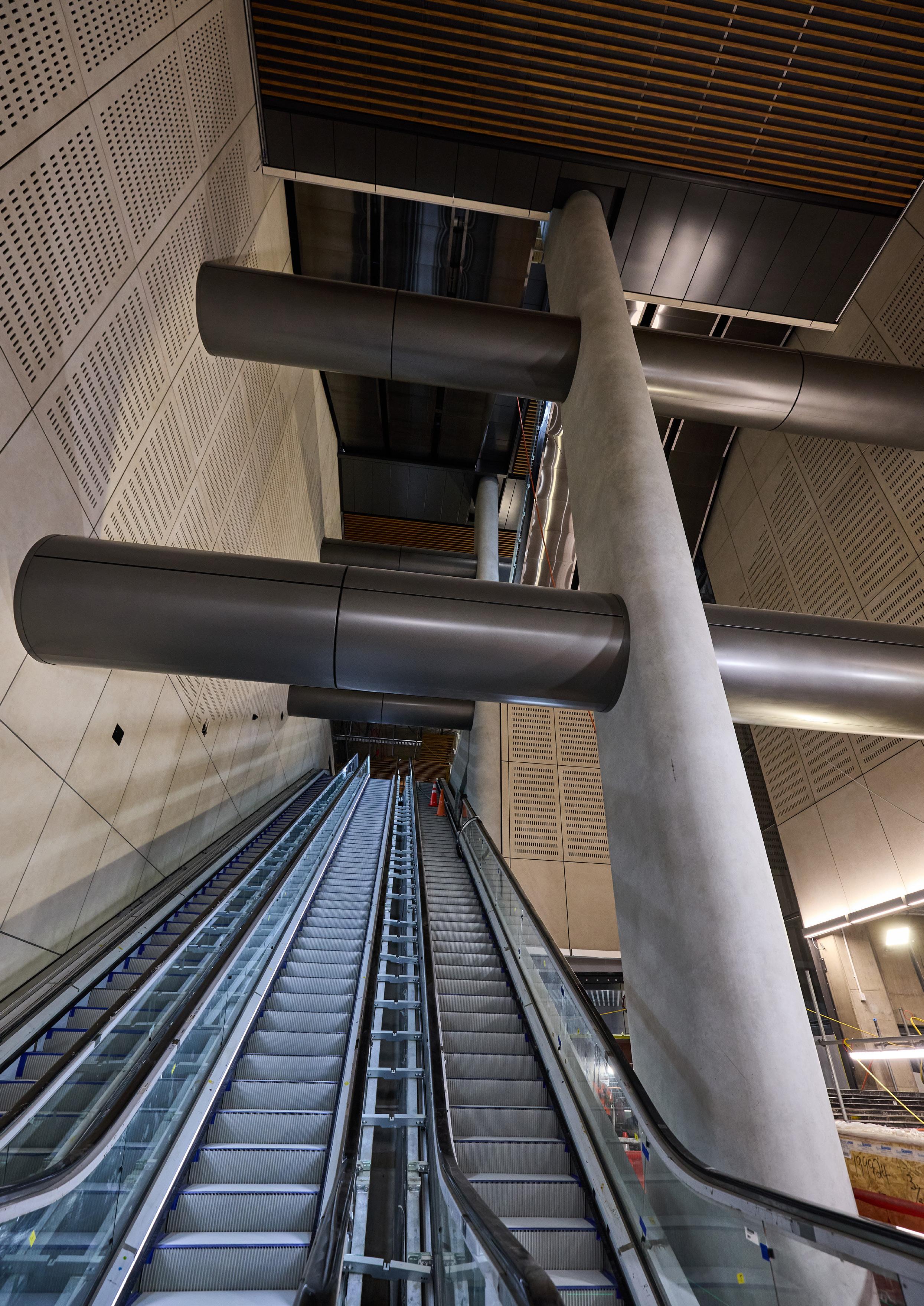
With a strong Project commitment to social impact Māori and Pasifika businesses anticipated that their Link Alliance contracts would foster both business and employee growth and development through access to mutually beneficial programmes and funding.
Over 2,500 training courses were completed by Māori, Pasifika and youth Link Alliance employees. However, while all Māori, Pasifika contract employees working onsite went through an extensive induction process, which varied depending on the stage of the project and the work contracted, there were no specific training and development programmes offered to the employees of Māori and Pasifika sub-contractors by Link Alliance.
Feedback also highlighted the challenges of strategic planning where workforce forecasts and contract terms were short term or unavailable, particularly in the early stages of work. Despite these challenges, the level of contract variations for Māori and Pasifika businesses was lower than average across the Link Alliance.
Māori and Pasifika businesses prioritise whanau: Detailed insights into project timelines and labour requirements and the project’s long-term plans, would have enabled suppliers to develop strategic training initiatives for emerging rangatahi. This foresight would empower suppliers to engage and upskill new talent, aligning with the project’s evolving needs and social impact objectives.
Resourcing workforce planning: Providing detailed and regularly updated workforce development plans to supply partners requires sufficient dedicated resource.
Supplier workforce development opportunities: Access to workforce plans allows suppliers to make better informed investment, training and recruitment decisions, aligning with project needs in a way which supports lower risk business growth.
Future business development and support: Business support is needed to understand requirements related to environment and sustainability, diversity and social impacts, career development planning and contract language (requirements, pricing methodologies and more accessible procurement processes).
Contract reviews: early contract reviews, attended by the Social Procurement Lead to enable ongoing whakawhanaungatanga and better business development.
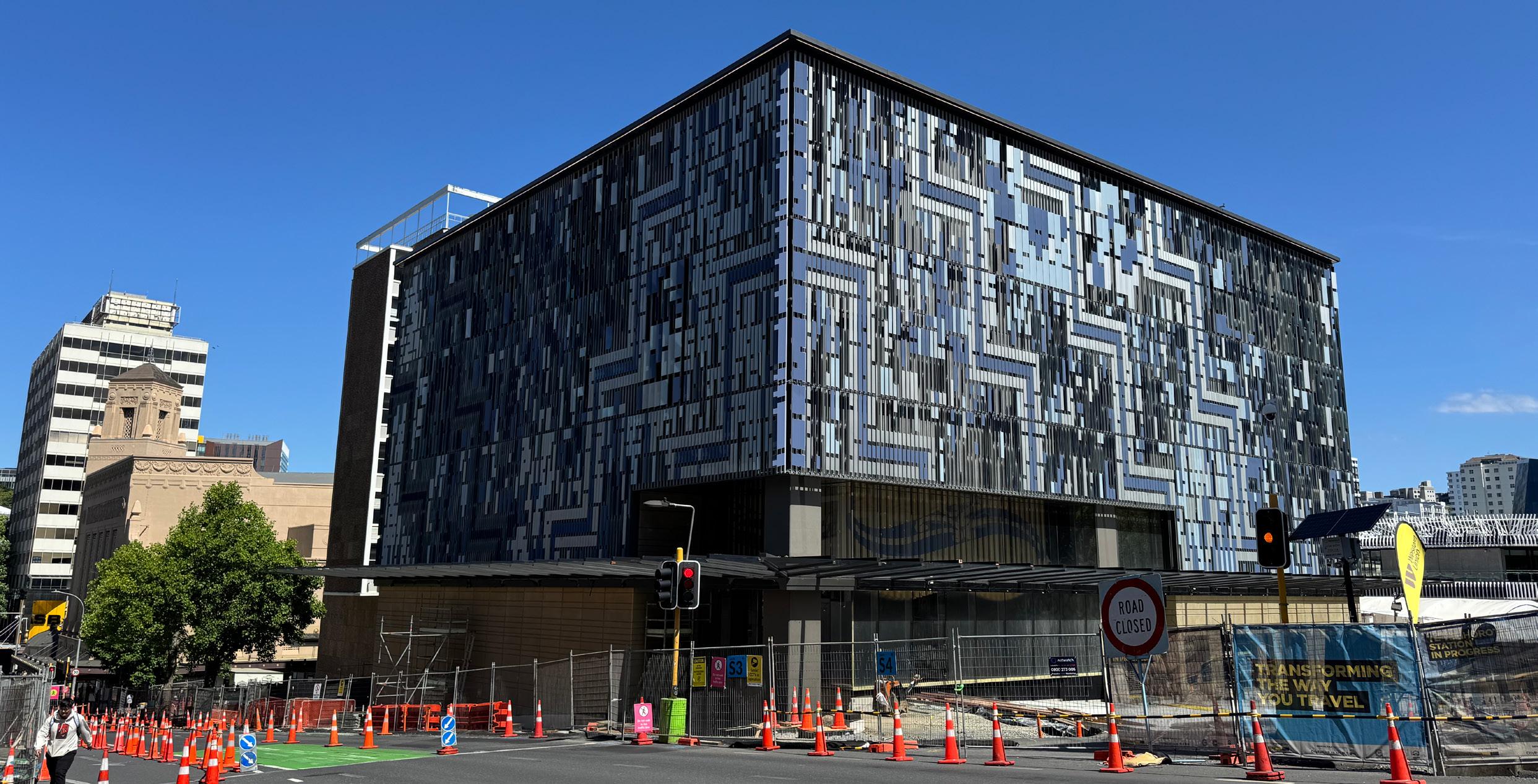
To ensure the success of social procurement engaging key decision-makers, providing early notice of tendering opportunities, upskilling procurement teams, ensuring timely payments, and offering flexible payment terms all rank highly.
Engaging key decision-makers: Despite having leadership support, procurement direction, a dedicated social outcomes team, and available supply sources, influential spend and decisionmaking often defaulted to familiar choices, indicating a lack of buy-in from middle management, site management, and project managers. This highlights a missed opportunity to fully engage this pivotal group in advocating for supplier diversity.
Implementation challenges: Getting outcomes into contracts is straightforward, challenges arise in the implementation when staff defer to their usual contractors rather than being open to working with new Māori and Pasifika contractors.
Early notice: Informing Māori and Pasifika businesses early about tendering opportunities allows them to prepare bids well in advance, encouraging their participation.
Procurement upskilling: Enhancing knowledge about social procurement and practical procurement skills is crucial. This could be achieved through team-wide training or inductions for new staff.
Timeliness of payment: Payment terms are monitored by Link Alliance and have improved over the project’s duration. Ensuring both parties are well resourced with simple is crucial and efficient systems and processes with sufficient resourcing from project commencement.
Payment terms: Supporting suppliers with flexible deposit requirements before work begins is important. Often businesses need to bring in subcontractors, pay for equipment, staff, and other operational costs to deliver on projects. Many small Māori and Pasifika businesses don’t have the capital to fund this activity without having payment terms such as deposits upfront, milestone payments and quick payments after invoicing.
In response to the challenges faced by Māori and Pasifika businesses working on the CRL project, CRL Ltd and Link Alliance have identified future sector-wide solutions to address these issues:
Raising awareness about why and how social procurement is needed
Cultural competency training
Supplier briefings with clear explanations of procurement processes, including:
• information on weightings
• the ability to ask questions
• support to ensure that risks inherent in planning issues are built into pricing as part of a wider cultural change within contract management
Ensuring the project has sufficient resources to implement social procurement, as team resources outside procurement directly impact on the relationship with Māori and Pasifika businesses
• Better whanaungatanga – ensuring regular contact and timely responses to queries and issues arising
• The importance of up-to-date Procurement Registers and Workforce Plans to provide sufficient time to identify and support potential and existing suppliers and
• Identifying ongoing opportunities for suppliers and the areas of capacity, training and development required to align with project and industry wide forecasting.
Ensuring regular contract reviews, and exit interviews on contract termination, to provide clarity and learning for the businesses' ongoing development and to identify opportunities to partner on social innovations or training.
Supporting access to business development support relating to:
• Environment and sustainability
• Diversity and social impacts
• Career development planning
• Understanding language in contracts, pricing methodologies and more accessible procurement processes

Business growth and planning:
It’s vital that companies understand the purpose of their organisation and where it’s heading. Whilst some companies are new and small, it can be helpful to have a business plan and work according to a realistic growth trajectory. Many businesses contracted to Link Alliance took on more than they could deliver and underpriced, creating challenging business environments to their own detriment.
Undersell and overdeliver:
It’s much better to have organisations be honest about their capability rather than oversell their capacity and capability and let the buyer down as it leaves a bad track record for the business.
Accept supplier debriefs and take feedback onboard:
Supplier debriefs are useful way of learning what went well and where there was room for improvement in tenders. Feedback throughout the project is generally given to improve the outcome for the business and the buyer so its usual for businesses to take it onboard.
Be responsive:
While we know things get busy, when clients are in contact, responding in a timely manner is important. Not responding can be seen as unprofessional and can have reputational damage. Even if the answer is difficult, responsiveness and honesty are appreciated more than not replying.
Putting your best foot forward:
When it’s time to throw your hat in the ring, make sure it’s your best one. Bidding isn’t just about putting a number on a piece of paper; it’s about presenting your business in a way that’s as compelling as it is competitive. You want to showcase not just your prices, but your strengths, your unique selling points, and why you’re the right fit for the job.

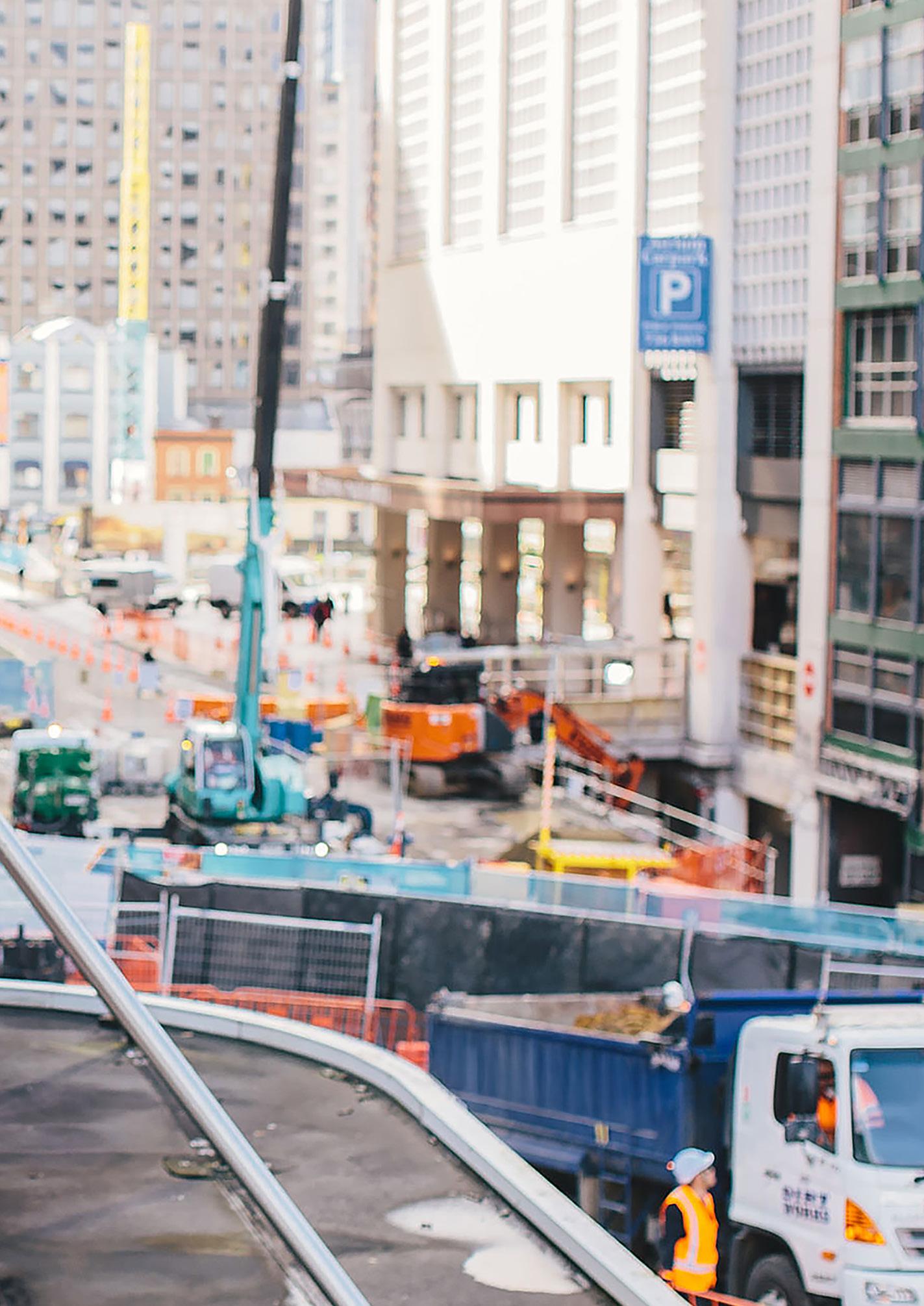

Steadfast Scaffolding was a longstanding subcontractor for Link Alliance. Up to seven staff worked each day across both Karanga-a-Hape precinct sites and within the site’s mined tunnels. The opportunity provided Steadfast Scaffolding new growth through commercial exposure, staff expansion and night shift was a new experience for the company.
“As a Māori and Pasifika business, we have loved the engagement with iwi such as Ngāti Whatua, Haahi, Hitori Māori and local businesses brought together through CRL. It is a unique project that offers a glimpse into what partnerships between Tangata Whenua and Tangata Tiriti ought to model throughout the entire business sector – not just construction.
We applaud the initiative, authentic and intentional relationship with Māori and Pasifika businesses. Clearly, this is a significant and courageous move from the Link Alliance, but one that will go down in the history books for Pakihi Māori and Business for generations to come.”
Korin Mckillop, Steadfast Scaffolding Director

Turbostaff were contracted as a labour hire partner with the Link Alliance in 2020 and had over 50 staff placed on the CRL project. Through the partnership, Turbostaff were able to closely understand the project’s requirements and culture, connecting the best people for the job.
Clayton Badland says the project’s enabled them to deliver more social impact.
“We are humbled by the fact that we have been able to support such an important and iconic project for Auckland. It has allowed us to drive social outcomes initiatives and provide amazing opportunities for many of our Māori and Pasifika workers, whose careers will benefit from the experience they are gaining on this project. We are proud to be a supplier of labour to the project and look forward to working together in the future.”
Clayton Badland, Aotearoa Team Manager
(Ngāpuhi, Te Ātihaunui-a-Pāpārangi)
ASCON is a skilled labour hire provider for intricate civil infrastructure projects. Based in Tāmaki Makaurau Auckland, ASCON is dedicated to delivering skilled leaders and teams across the construction sector, while also nurturing the growth of rangatahi and emerging talent. Built upon Te Ao Maori values, the company has embraced a whakawhanaungatanga (relationship-based) approach, leading to the creation of a culture centred on high performance, team collaboration, strong connections, and the well-being of individuals.
ASCON’s successful inclusion in the CRL project was a result of its strong reputation, ASCON have been working with CRL since 2020 and have experienced substantial organic growth because of the opportunity. Despite encountering some challenges typical of large projects, the project has proven to be rewarding for ASCON.
Whakawhanaungatanga (building relationships)
ASCON successfully secured an opportunity through key relationships coupled with a strong work ethic and excellent reputation. This enabled ASCON to continue working on the project for multiple years. Showing the importance of building relationships, and making the right connections with the right people, at the right time.
ASCON identified opportunities for improving awareness and accessibility of CRL’s and Link Alliance's additional support programmes, such as upskilling of staff. They noted the need for clearer communication channels, as information about these programmes was often discovered indirectly through other businesses.
ASCON recognised the potential for enhanced workforce development through better understanding of the project timelines and labour requirements. With more detailed insights into the project’s long-term plans, ASCON could have more strategically developed training initiatives for their emerging rangatahi. This foresight would have empowered ASCON to more effectively engage and upskill new talent, aligning with the project’s evolving needs.
The CRL project served as a catalyst for ASCON’s organic growth, offering a platform to expand their team, enhance their processes and systems, and mature as a business entity. The on-site CRL team contributed significantly to this development through supplier development initiatives. ASCON benefited from prompt payments, constructive collaborations, and an overall positive engagement with the CRL project. These factors combined to create an environment conducive to ASCON’s natural and sustainable growth.
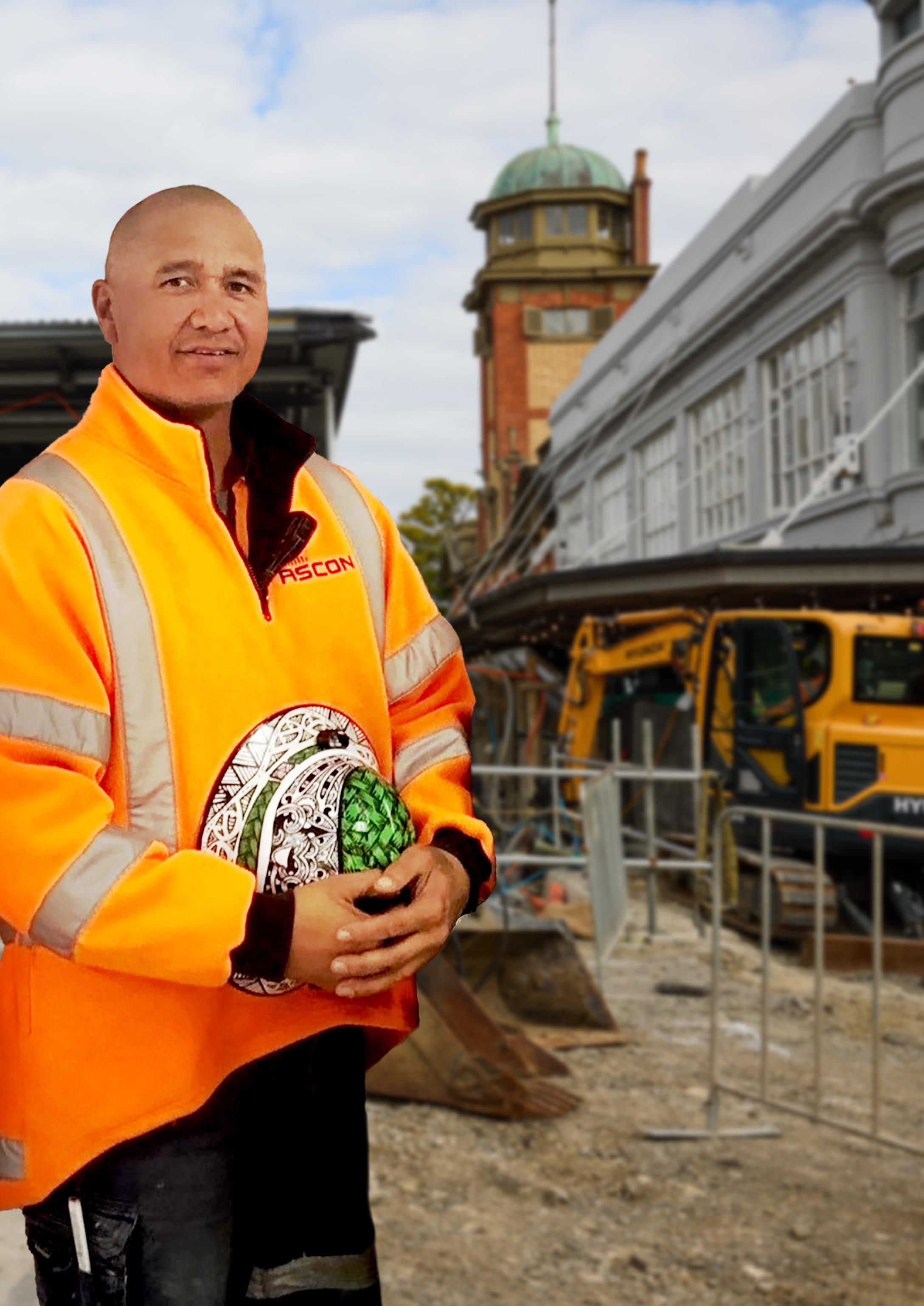
Our values need to align, just because it’s mahi does not mean we are going to take it. Kaupapa Māori is intertwined in what we do.
Susan Ngeru, Director at ASCON
Business owner: Maioro Taylor (Ngāti Te Ata, Te Waiariki)
Māori Videography, a small Māori owned videography company, specialises in producing high-quality video content. They were contracted by Link Alliance to produce health and safety videos related to COVID-19 and capture cultural messaging and narratives for the project.
Being a relatively young company, the opportunity to work on the CRL project was immensely valuable for Māori Videography. It allowed them to refine their skills working on a large-scale project. The contract not only brought commercial benefits to the business but also provided an opportunity to learn and navigate the process of pitching to a large client.
Working on the largest infrastructure project in Aotearoa held great significance for this small business. They felt as though it instantly enhanced their credibility and established a solid track record, elevating their position within the industry.
The importance of relationships
It’s important that staff within major projects and organisations proactively scan the market and build relationships with Māori businesses who otherwise may never turn up on the radar. Without that, businesses often don’t know who to contact or rely on cold calling attempts.
Many businesses like Māori Videography have deposit requirements before work begins. Often businesses need to bring in subcontractors, pay for equipment, staff, and other operational costs to deliver on projects. Many small Māori businesses don’t have the capital to fund this activity without having payment terms such as deposits upfront, milestone payments and quick payments after invoicing. Link Alliance ensured that a deposit was paid, to enable the work to begin.
Being contracted into a project as large as the CRL gives Māori businesses credibility and track record to do work on other large projects as well as for other large organisations. Additionally, it provides exposure to new people and creates new networks for future opportunities.

It’s been a significant contract for us. Having Aotearoa’s biggest infrastructure project as a client gives us credibility for other large clients. It meant I could bring someone else on to the project, another Māori business to support the filming. So its been a good project for us to work on and we are grateful for the opportunity.
Maioro Taylor, Māori Videography Director.
Business owner: Glen Harding-Ruma (Ngāpuhi, Ngāti Whātua, Ngāti Kahungungu, Te Whānau ā Apanui)
Independent Traffic Control Limited (iTraffic) is a traffic management company that specialises in the planning, design, implementation of Temporary Traffic Management services for all road levels, for all situations, nationwide.
iTraffic was brought on to the project from the beginning. Delivering traffic management from start to finish demonstrates iTraffic’s capabilities in delivering large scale projects successfully, but it hasn’t been without its challenges.
These included contract agreements, variations and payment terms. iTraffic has provided traffic management amongst a turbulent economic period which included the global COVID-19 pandemic, cost of living crisis, fuel price rises and record low unemployment. iTraffic persevered on the project whilst providing 50+ staff on CRL sites each day.
Long-term partnerships
iTraffic was initially engaged on a 12-month contract rather than a multi-year contract. They considered that having a long-term view would have created better outcomes as they could have leveraged on this to invest in more equipment, training and personnel to support the project in its entirety. They add that having long-term agreements helps to enable contract security and enable businesses to prepare to better support clients.
Recognising social outcomes value
iTraffic actively supported staff with transport, a key aspect of their pastoral care initiatives. This assistance removed a barrier was crucial for employee access to work. This emphasised their dedication to supporting the wellbeing of their team and enabling them to get to work safely. Their approach signals an opportunity for future projects to consider how it may consider value-added elements, particularly when initiatives enable employment outcomes for Māori and Pasifika.
A key learning has been that initiating contract reviews should be well in advance of the end date. Timing contract reviews well in advance of their end date can help streamline negotiations, enhance financial planning, and strengthen partnerships. iTraffic and Link Alliance navigated the complexities of contract negotiations and payment schedules, a common challenge in projects of this scale.
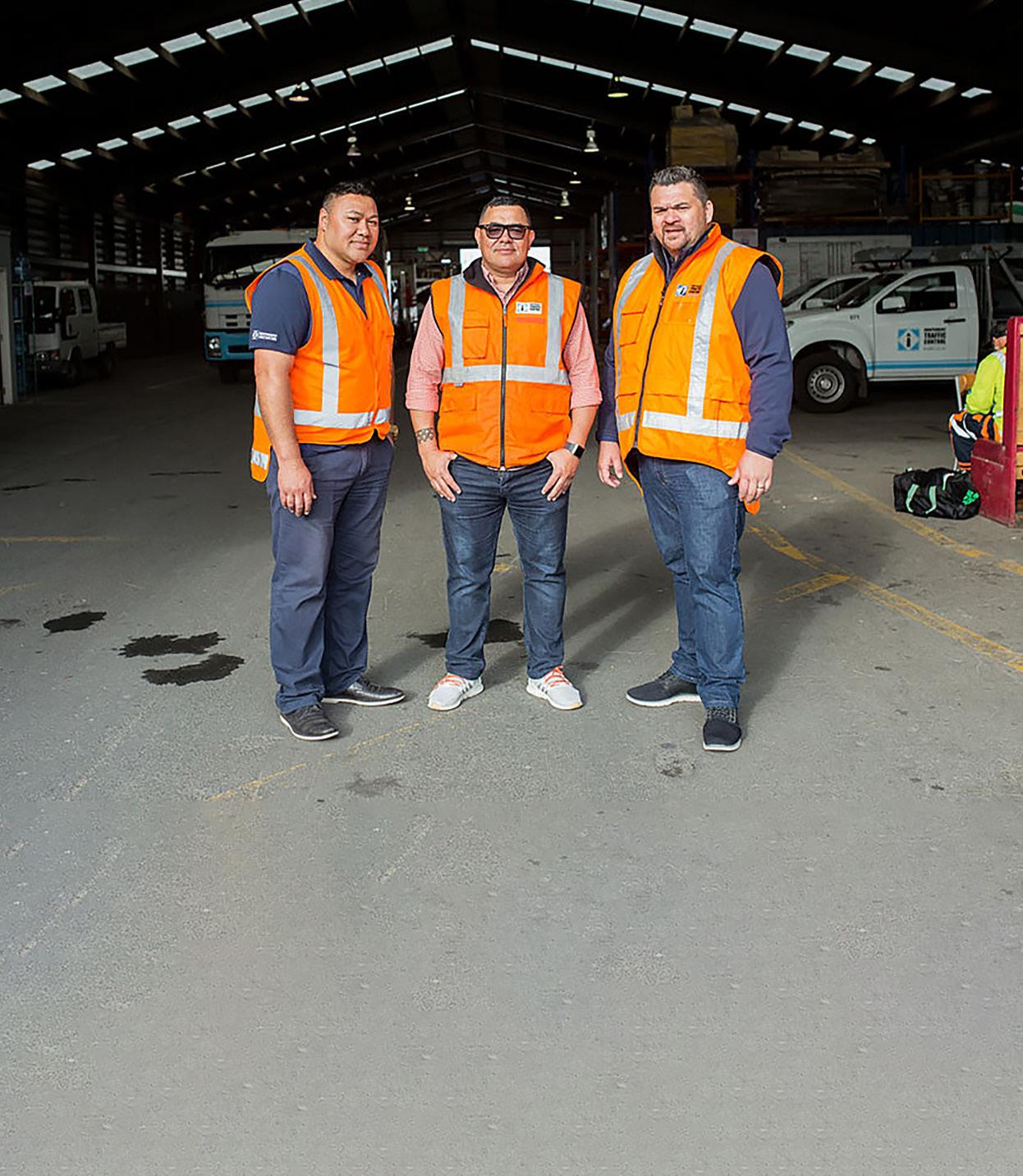
Whilst the project has had its challenges, we are proud to have delivered traffic management on the CRL from start to finish.
Glen Harding-Ruma, Independent Traffic Control.
Business owner: Mike Murray (Ngāti Kuri, Rongomaiwahine)
Ama Training Group is a private training establishment (PTE) based in West Auckland, focused on providing industry specific and learner-centred training to Māori and Pasifika whānau. They also have a civil arm that provides training and work experience for people not in education, employment or training, and rangatahi (youth) in the infrastructure industry. They consider that their training provides a stable and understanding environment for rangatahi where they can grow their life skills and achieve a tohu (certificate), while getting an income.
Ama were originally engaged to support the Social Outcomes team to understand ‘What Māori leadership is’. This programme was originally planned to be delivered in person but pivoted online due to the first COVID-19 lockdown.
Following the success of this initial engagement they ran several other leadership training programmes across the wider organisation. This included leadership training for middle managers and providing an understanding of the Māori worldview to mentors of rangatahi employees.
Existing networks and reputation
Businesses often struggle to engage with clients when they don’t have an existing relationship. It can be really hard to find the right person in a large organisation to engage with. However, when you do find the right contact, they are often the ones to open the door from the inside. In this case, Mike met a City Rail Link team member at an Amotai event and that connection enabled a conversation about contract opportunities. Without this initial connection and relationship built on shared values Ama Training would not have been able to demonstrate their reputable work.
Ama Training has successfully attracted and secured small contracts which have supported their growth but this required a lot of administrative work to support a small return. They feel they would have benefitted from a more strategic relationship that ensured ongoing work on the project.
During COVID-19 lockdowns, the project team’s focus understandably shifted to navigating immediate logistical disruptions and ensuring safety, causing Māori leadership training to take a back seat. The level of buy-in from participants and their managers varied across the programmes. When the buy-in from managers was strong, participation rates tended to be higher. This instance highlighted that key cultural initiatives need robust systems in place to maintain their priority status, regardless of unforeseen challenges or team leadership.
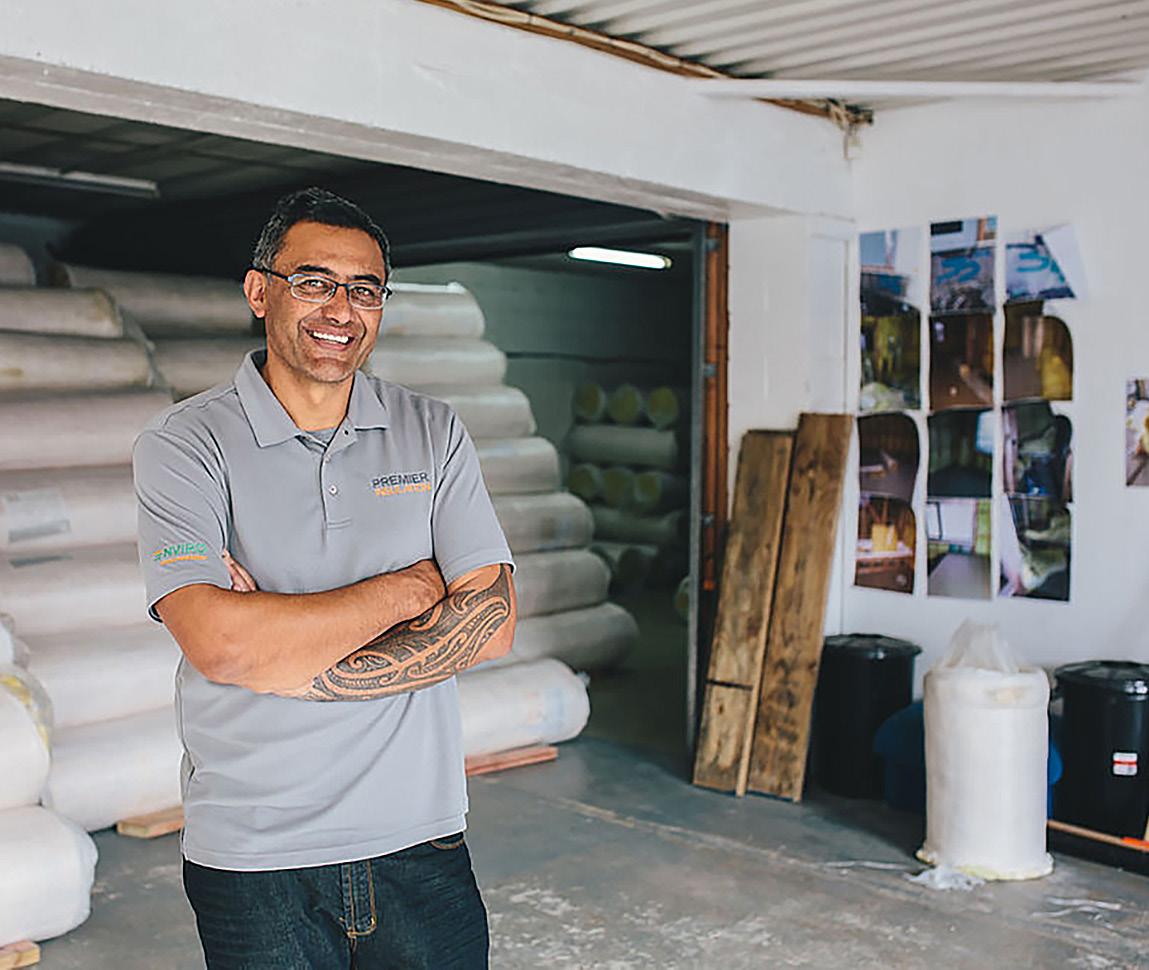
Whanaungatanga and shared values are important to us, it’s how we like to do business and is how we we’re engaged to do mahi with Link Alliance. Mike Murray, Ama Training.
More information: cityraillink.co.nz/crl-social-outcomes